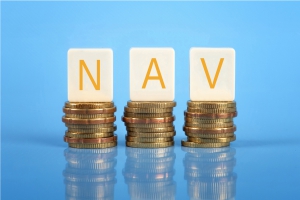The price is evidently one of the first things you may notice when you go shopping. If you find yourself gravitating towards the Rs. 10 chai from the Rs. 100 chai, you are not alone. A low price is a major attraction, and rightly so. However, it may not be the be-all and end-all of everything, and certainly not so in the case of mutual fund schemes. Mutual funds are widely considered ‘affordable’ or ‘expensive’ on the basis of their Net Asset Value (NAV). Keep reading to find out whether this is true and if a low NAV mutual fund really makes a difference.
First things first, what is NAV in mutual funds?
NAV plays a critical role in understanding the basics of mutual funds. It is the per-unit price or the market value of the securities held by the fund. It is calculated by using the following formula:
Total assets – Total liabilities/Total number of units
The NAV can fluctuate every day based on the change in the value of securities. As per the regulations of the Securities and Exchange Board of India (SEBI), the NAV is declared at the end of the trading day after the market closes.
High vs Low NAV mutual fund – does the price matter?
While you may think a low NAV can help you save money or contribute to better profits, the reality is not so. The NAV of a mutual fund has little to no effect on its performance or your returns. What matters is your overall investment budget. For instance, if you have a budget of Rs. 500, you can invest it in two ways:
- You buy 10 units of a scheme with an NAV of Rs. 50, and the scheme grows by 10%. So, your investment would increase to Rs. 550.
- Likewise, you buy 50 units of another scheme with an NAV of Rs. 10, and the scheme offers a return of 10%. So, your investment value would go up to Rs. 550.
In both cases, your earnings are the same because the rate of return is the same. A low NAV is not necessarily a cost-effective option, and a high NAV is not always an indicator of good performance. There are several other factors that affect the scope of your returns, such as:
- Portfolio diversification: The securities and companies that the fund invests in can determine the fund’s growth potential.
- Type: Different mutual funds deliver different returns. For instance, debt funds provide relatively lower returns than equity funds.
- Expense ratio: The costs of management or administration can impact your overall returns.
Conclusion
You should not base your investment decisions on the NAV of different funds. There are several other features of mutual funds that you can focus on when selecting a mutual fund, such as its type, costs, portfolio, fund manager’s experience, and more.
An investor education initiative by Edelweiss Mutual Fund
All Mutual Fund Investors have to go through a one-time KYC process. Investors should deal only with Registered Mutual Fund (RMF). For more info on KYC, RMF and procedure to lodge/redress any complaints, visit - https://www.edelweissmf.com/kyc-norms
MUTUAL FUND INVESTMENTS ARE SUBJECT TO MARKET RISKS. READ ALL SCHEME-RELATED DOCUMENTS CAREFULLY
Trending Articles
MUTUAL FUND INVESTMENTS ARE SUBJECT TO MARKET RISKS, READ ALL SCHEME RELATED DOCUMENTS CAREFULLY.




















